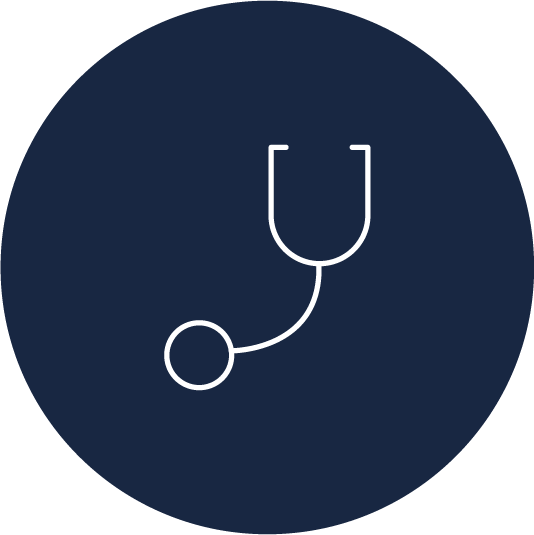Type: Departments
Cancer Care Pathways
Posted on April 25, 2023 by fabron.a.frendo@gov.mt -
About
The Cancer Care Pathways Directorate was established in October 2014 with the aim of promoting advancement in quality cancer care and to offer support, advice, timely access, coordination and continuity of care for cancer patients. As part of its pathway, aspects of patient needs must be continuously assessed as cancer has several implications on the family life, social life and consequently society in general.
Cancer Care spans the whole patient pathway from screening or initial referral for a symptom to cancer diagnosis to treatment followed by survivorship, palliative care or end-of-life care and therefore, this requires continuous improvements in patients’ experiences and outcomes across the cancer journey. On an organizational level, the Cancer Care Pathways Directorate aims to illustrate patient processes through the different phases of the cancer pathways for different cancers with the aim of identifying the strengths and weaknesses of the current service provision and improve pathways of care. This information is then passed on to policy and decision makers, stakeholders and institutions. Such research initiatives provide assistance to the Director General (Health Care Services) and other key stakeholders by contributing the necessary evidence in the formulation of policy and national strategy in the area of cancer care.
Aims and Responsibilities of the Caner Care Pathways Directorate
This directorate provides the following services:
- Provides Fast Tracking Services so that referrals of suspected cancer sent by General Practitioners are fast-tracked to a timely appointment for their first Consultation at hospital;
- Provides Nurse Navigation services whereby expert Oncology Navigator nurses assess newly diagnosed cancer patients to identify any challenges, unmet needs and service gaps assisting the patients and their families to overcome barriers to care so as to receive timely care and treatment. They also may recommend initiatives or amendments to procedures or cancer pathways as required towards improving care coordination and continuity of care for cancer patients and their families and to improve quality and timely care;
- Provides Survivorship services to assess the unmet holistic needs of patients and their families during the post-treatment stage and beyond cancer. The Survivorship Coordinator provides assistance according the needs identified and organizes wellness/rehabilitation classes/programs to assist patients and families to cope and adapt with changes due the cancer experience;
- Carries out research and audits to provide evidence regarding timelines for cancer pathways to provide the necessary recommendations and direction for implementing care coordination and other service improvements;
- Improves coordination of care for metastatic and palliative patients;
- Helps to improve communication and networking between various organisations / hospitals / entities / programmes;
- The Cancer Care Pathways Directorate also develops information booklets and improves patient information in the treatment stage and any other information gaps in cancer services;
- Identifies barriers to screening programmes to increase uptake rates;
- Communicates relevant results and reports from the above initiatives to key stakeholders.
The Cancer Care Pathways Directorate Team currently consists of:
- The Director
- A Senior Practice Nurse
- Staff Nurse
- Two Colorectal Nurse Navigators, a Lung Nurse Navigator, a Urology Nurse Navigator, a Gynae Nurse Navigator
- A Nurse Survivorship Coordinator
- A Fast Track Coordinator
- A clerk
The Directorate currently is also in the process of recruiting more personnel to build the structure and services of the directorate.
Dar Kenn Għall-Saħħtek
Posted on April 25, 2023 by fabron.a.frendo@gov.mt -
Structure, Functions and Responsibilities
‘Dar Kenn Għal Saħħtek’, a facility offering residential and outpatient programmes aimed to provide a holistic treatment of patients with eating disorders and obesity.
The overall objective of the programme of intensive rehabilitation is to begin or continue a course of treatment aimed at interrupting the growth and maintenance factors of the disorder. An important feature of this approach is the high structuring of treatment that allows a correct evaluation of the results and the possibility of directing therapeutic intervention to the specific needs of the patient and his\her family.
A Multidisciplinary strategy that includes a psychological, nutritional and familial approach is adopted. The methodology is based on a common therapeutic programme involving collaboration among multiple professions addressing multiple factors by cooperating and integrating professions and adhering to the same theoretical model of treatment. The programme features highly specialized care and is divided into different stages of care from both a psychological and nutritional aspect.
The organization of the day is highly structured, both in the careful management of the meals and in activities aimed at making patients regain a correct eating pattern.
The principal aims of the Centre are the following:
- To address the causes of poor health and well-being related to eating habits.
- To provide comprehensive programmes based on local eating habits which are accessible to all.
- To support persons who experience eating disorders and obesity by providing holistic treatment.
- To provide follow up care for persons after being released from hospital following an acute admission for an eating disorder.
- To promote healthy lifestyles.
Objectives
- To provide support and treatment for those experiencing eating disorders and obesity and an opportunity to share personal experiences and coping strategies with others.
- To inform and through educational activities help to raise the level of understanding of eating disorders and obesity and encourage prevention, treatment and recovery.
- To liaise in the prevention of eating disorders and obesity with the Health Promotion and Disease Prevention Department currently within the Ministry for Health.
- To provide a confidential, safe and homely place for the delivery of a holistic therapy for sufferers of all ages as well as support to their families.
- To provide a means of tackling social isolation and empowerment.
- To provide support for sufferers and carers so that they do not feel alone and to deal with individuals in a professional manner exercising strict confidentiality.
- To help sufferers receive professional help in a homely environment.
- To promote the recognition of eating problems at an early stage most particularly in schools.
- To provide all the necessary support to sufferers to ensure their social reintegration after the phase of residential treatment.
- To support ongoing research, clinical practices, and various study possibilities for students in educational institutions who wish to broaden their studies in this field.
- To compile, share information and experiences with similar centres.
- To promote physical activity and motivate people to live a healthy lifestyle.
- To promote a healthy body image and self-esteem.
Health Informatics
Posted on April 25, 2023 by fabron.a.frendo@gov.mt -
Structure, Functions and Responsibilities
The Health Informatics Directorate focuses on health data governance, quality, privacy and reporting within the Ministry of Health and Active Aging.
The directorate is composed of the following Units:
- Health Data Management
- Data Governance
- Digital Health and Data
- Data Protection
- Medical Records
- Medical Illustrations
Responsibilities
- To co-ordinate and promote health informatics across all healthcare services
- To identify requirements in the operability of health informatics within healthcare services and give advice and recommendations
- To collect, analyse and disseminate health information to ensure continuous monitoring, innovation and sustainability within healthcare services
General Description of the Categories of Documents Held
- Hospital activity reports
- Data protection procedures
- Written and photographic clinical documentation
- Standard Operation Procedures
- Quality Assurance procedures and review of process workflows
- Data governance procedures and reviews
People Management Division
Posted on April 25, 2023 by fabron.a.frendo@gov.mt -
Please activate some Widgets.






